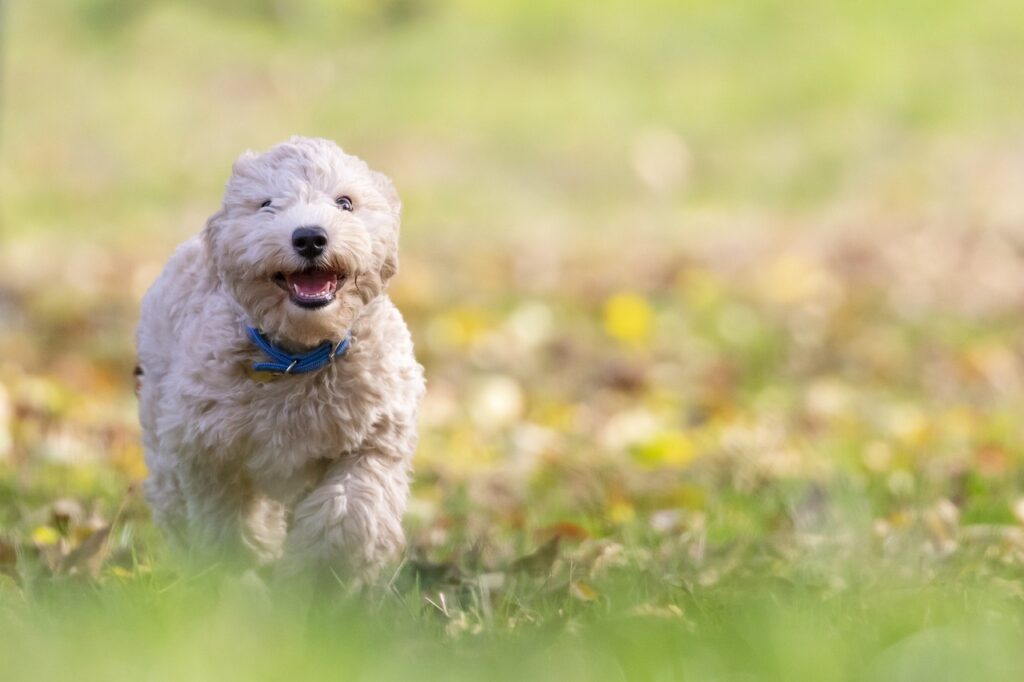Can Dogs Eat Cheese? – Yes, They Can
For all the cheese-loving pups out there, here’s some gouda news: Yes, dogs can indeed have cheese, but it’s important to serve it in moderation. Cheese is a tasty treat that many dogs enjoy, and it can be a great training aid. However, cheese often contains high amounts of fat and lactose, which some dogs might have trouble digesting. Introduce cheese into your dog’s diet slowly, and always keep an eye on their reaction to it.
Can Puppies Eat Cheese?
Just like adult dogs, puppies can have cheese, but it should be approached with extra caution. A modest bit of cheese can be a good incentive during puppy training sessions, but their young digestive systems are more sensitive. Limit cheese intake to small quantities and opt for low-fat varieties such as mozzarella or cottage cheese, ensuring it does not upset their stomach.
Things to consider when feeding cheese to puppies?
When introducing cheese to puppies, consider their overall diet and nutritional needs. Puppies require a balanced diet to support their growth, and treats should only make up a small portion of their food intake. Always check with your vet before adding cheese to your puppy’s diet, especially if they have any existing health conditions or dietary restrictions.
Nutritional Benefits of Cheese for Dogs – Why Cheese is Good for Dogs
Protein
Cheese is a good source of protein, which is essential for your dog’s muscle development and repair. It also provides them with energy and supports healthy skin and coat.
Calcium
The calcium in cheese contributes to strong bones and teeth, which is particularly important for growing puppies and senior dogs with more fragile bones.
Vitamins
Cheese contains essential vitamins like A and B-complex, which support vision health and metabolic processes respectively.
Fatty Acids
The presence of fatty acids in cheese can help keep your dog’s coat shiny and promote healthier skin. However, too much fat can lead to weight gain, so moderation is key.
Enzymes
Some cheeses have enzymes that can aid in digestion, although this benefit varies greatly depending on the type of cheese and how it’s processed.
Potential Allergies: Can Dogs Be Allergic to Cheese?
Yes, dogs can develop allergies to dairy products like cheese. If you notice any signs of an allergic reaction after feeding your dog cheese, it is essential to stop offering it and consult a vet for advice.
Symptoms of Cheese Allergies in Dogs
- Gastrointestinal upset : Look for signs like vomiting or diarrhea after consuming cheese.
- Itchy skin : Watch out for excessive scratching or licking, which might indicate an allergic response.
- Ear infections : Repeated ear infections can also be a sign of food allergies, including reactions to cheese.
What to Do If Your Dog Shows Symptoms?
- Consult a veterinarian: If you suspect an allergic reaction, the best course of action is to talk to your vet for proper diagnosis and treatment.
- Immediate diet change: Remove cheese and other dairy products from their diet to avoid further reactions.
- Antihistamines or medication: Depending on the vet’s advice, an antihistamine or other medication might be required to address the symptoms.
Recommended Amount: How Much Cheese Can a Dog Consume?
While cheese can be a delicious snack for dogs, it should only be given in small amounts. Treats should not make up more than 10% of a dog’s daily calorie intake. For a small dog, a few small cubes of cheese will suffice, while larger breeds may handle slightly more, but always prioritize their main diet for nutrition.
Things to Consider When Feeding Cheese to Dogs
Bear in mind that not all cheese is created equal. Opt for low-sodium and low-fat versions, and avoid cheeses with herbs or flavorings that could be toxic to dogs. Also, take into account any special dietary restrictions your dog might have, like lactose intolerance or obesity.
How to Feed Cheese to Dogs: A Quick Guide
Cheese can be much more than just a tasty treat; it can be part of engaging activities and recipes that are both nutritious and exciting for your dog.
Classic Cheese Cubes
Simple yet effective, cutting cheese into small, bite-size pieces can be an ideal treat during training sessions or as an occasional snack.
Cheese-Stuffed Toys
Spreading a thin layer of soft cheese inside a toy can provide hours of entertainment and a savory reward for your furry friend.
Frozen Cheese Delight
For a refreshing summer treat, mix some low-fat cheese with plain yogurt and freeze the concoction in ice cube trays or as popsicles!
Conclusion
In moderation, cheese can be a delightful addition to your dog’s diet. It’s important to choose the right type, serve it in small amounts, and monitor your dog’s reaction. Keep an eye out for any signs of lactose intolerance or allergies, and always consult with a vet if you’re unsure. With these tips in mind, your pup can safely enjoy the occasional cheesy treat!



